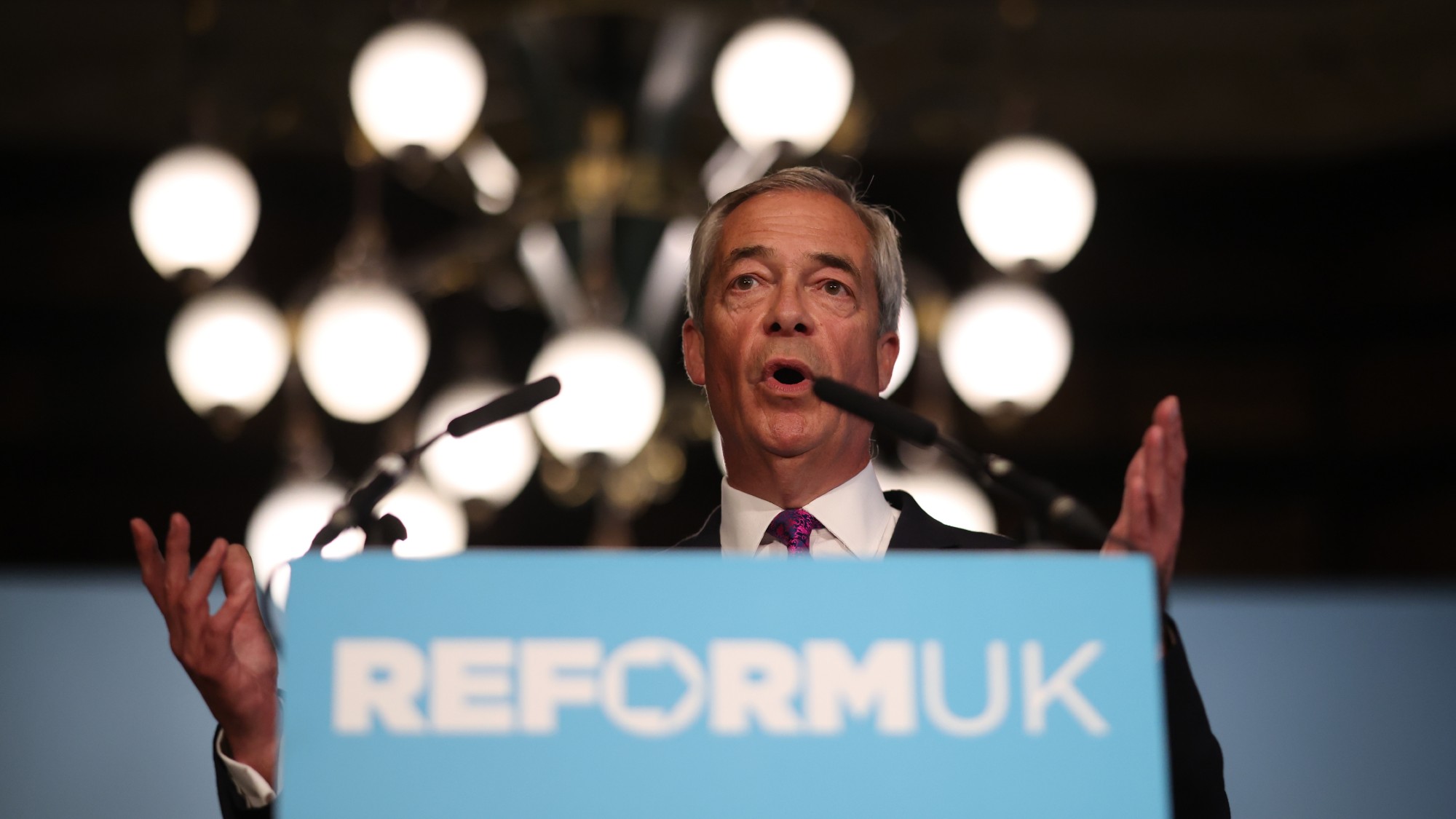What's behind Farage's leftward pivot?
Reform leader announced headline-grabbing policies on winter fuel payments and child benefits

A free daily email with the biggest news stories of the day – and the best features from TheWeek.com
You are now subscribed
Your newsletter sign-up was successful
Some colourful words have been used to describe Nigel Farage over the years but "socialist" has rarely been one of them.
But, as the Reform leader pledged to reverse cuts to winter fuel payments and lift the two-child benefit cap, he and his party appear to be trying to court voters who lean left economically – and that could cause a headache for Keir Starmer and Labour.
What did the commentators say?
"Something significant has changed" about the man who "made his name as a nationalist" and has "berated socialism all his career", said David Maddox in The Independent. He's now "openly espousing traditionally left-wing causes".
The Week
Escape your echo chamber. Get the facts behind the news, plus analysis from multiple perspectives.

Sign up for The Week's Free Newsletters
From our morning news briefing to a weekly Good News Newsletter, get the best of The Week delivered directly to your inbox.
From our morning news briefing to a weekly Good News Newsletter, get the best of The Week delivered directly to your inbox.
His "handbrake turn to the left" started with the "much deeper-seated left-wing policy" of nationalisation. In a "shocker" of a move, the former metals market trader went to Scunthorpe and "promised to nationalise British Steel".
Farage is "in the party-smashing business" and, "having taken a wrecking ball" to the Tories, he's now "openly working to outflank" Labour "from the left", said Mark Wallace in The i Paper. While the "government is a sluggish galleon, becalmed" by fiscal rules, Farage can excel as the "nippy privateer" because he doesn't have to worry about the "balance sheet".
Although it "might seem baffling" that a party of the right could appeal to left-wing voters, much of what was the Labour core vote has always been "right-wing on issues like immigration and border control, law and order and defence".
Reform is still "right-wing" if you "define your political spectrum entirely on attitudes to national borders and on woke issues", like net zero, critical race theory and trans rights, said Ross Clark in The Spectator. But, "if your spectrum is drawn along economic lines", the party is now "firmly on the centre-left". That's a problem for Labour but it's mostly "good news" for the Tories because it "opens up a large flank for them on the economically liberal side": they can be, "once again, the only party in favour of small government and free markets".
A free daily email with the biggest news stories of the day – and the best features from TheWeek.com
Farage once said his "thinking" aligned with Jeremy Corbyn's, in the sense that both are "anti-establishment" and bristle against the "giant corporates" who dominate our lives, said George Eaton in The New Statesman. An "astute political entrepreneur", the Reform leader has "spotted" that "there are votes to be won from railing against big business".
"Faith in the state is gone" and politics is "no longer" right vs. left but "plebs vs patricians", said Tim Stanley in The Telegraph. Farage is simply an opportunist who knows "you've got to identify yourself" with the "larger half" of that divide.
What next?
Farage's statements about scrapping winter fuel payment cuts, lifting the two-child benefit cap and introducing tax breaks for married couples have grabbed the headlines, but they will now come under the scrutiny of the economists' microscope.
"As it stands", Reform haven't "really set out how they would pay for such big giveaways", Stuart Adam, a senior economist at the Institute for Fiscal Studies think tank, told the BBC.
"Of course they don't have to do that yet – we're not at a general election. But, at some point, if they're going to be a party of government, they would have to make those numbers add up."
Chas Newkey-Burden has been part of The Week Digital team for more than a decade and a journalist for 25 years, starting out on the irreverent football weekly 90 Minutes, before moving to lifestyle magazines Loaded and Attitude. He was a columnist for The Big Issue and landed a world exclusive with David Beckham that became the weekly magazine’s bestselling issue. He now writes regularly for The Guardian, The Telegraph, The Independent, Metro, FourFourTwo and the i new site. He is also the author of a number of non-fiction books.